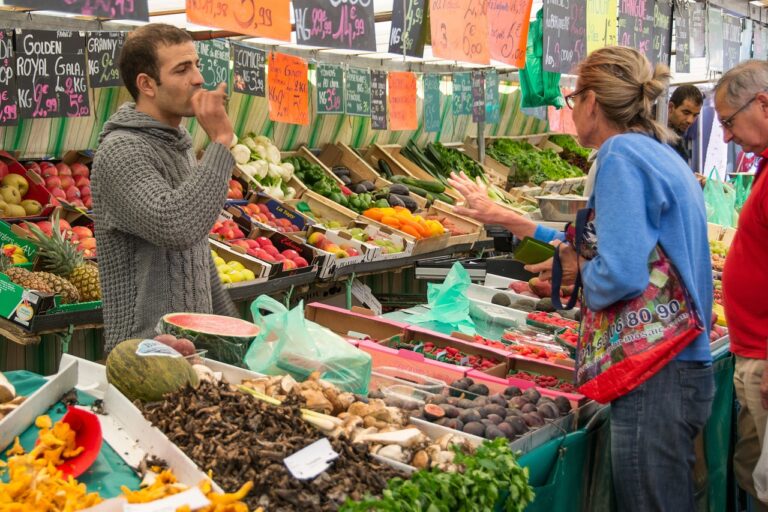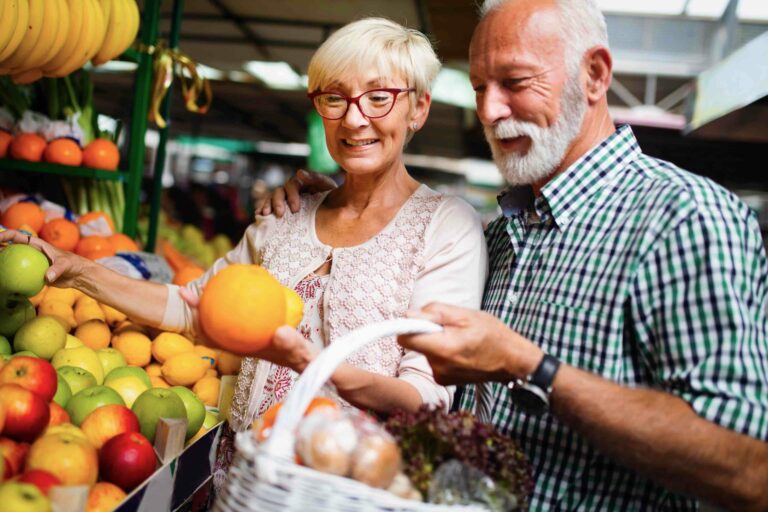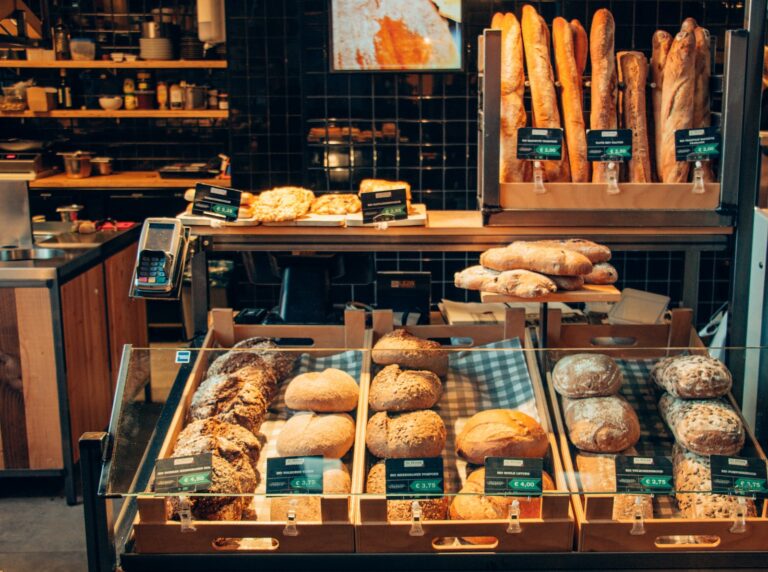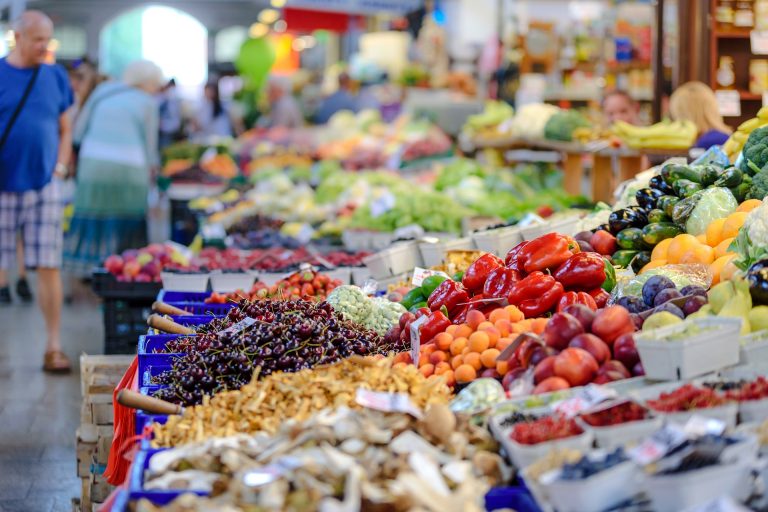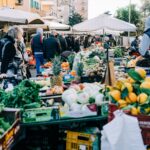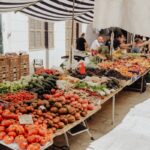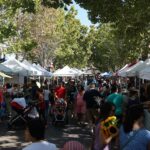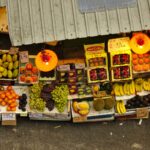There are few things as satisfying as taking your hard-earned money, walking into a farmers market, and buying exactly what you need in order to make dinner tonight. It’s an experience that will also be more rewarding than any trip to the grocery store.
However, it’s crucial to understand how these markets work so you don’t get scammed by someone who doesn’t know their onions (or strawberries). Here are some tips for being a smart shopper at farmers markets:
Get there early.
If you want the best selection, go early. Most vendors start setting up at the crack of dawn. Some markets open at 6 am or earlier and many run until midday or later. While it might be tempting to sleep in, being one of the first customers means you’ll get first dibs on everything from fresh produce and artisanal goods to handmade art and crafts (and maybe even a breakfast taco). Plus, if there happens to be anything left over by noon (which is unlikely), you can always come back later in the day for seconds!
Don’t forget that some farmers markets have limits on how much food you can buy each time—you’ll need to check with your local market to see what those limitations are before filling up your basket!
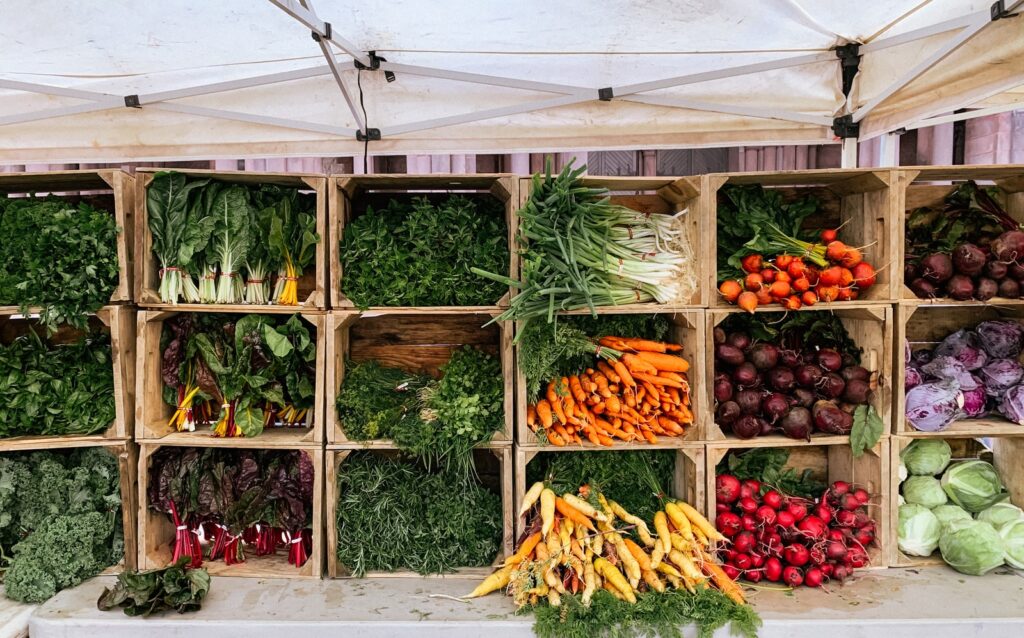
Bring small bills, cash, and/or your own reusable bags.
- Bring cash or small bills. Many people prefer to use credit cards, but there are pros and cons to each method: If you use cash, vendors don’t have to pay any fees that come with accepting your payment electronically (like Square). Plus, if you buy multiple items at once and pay in cash, vendors may be able to give you a discount. Some farmers markets also provide incentives for using checks as well as other types of non-cash payment methods—so ask around!
- Bring your own reusable bags with you on shopping trips; many vendors will offer them at no cost or let customers use their own bags instead of plastic ones if they ask nicely. This is good not only for the environment but also because it saves time—no need to dig through your car looking for an old bag when there’s one right next to the stand where you’re buying produce! Plus it helps cut down on wastefulness since fewer paper/plastic products mean less garbage going into landfills later down the line too.”
Don’t be afraid to ask questions.
As a general rule, it’s advisable to avoid being stingy with your questions. Don’t be afraid to ask where the food came from, how it was grown or raised, and so on. If you’re interested in finding out more about the source of your food, ask for a sample—that’ll give you an idea of quality while also giving the vendor a chance to showcase their best work. If you still have questions after that first sample (or if something seems off), go ahead and get another one!
You should also feel comfortable asking about sustainability practices employed by farmers. You may not know what sustainable means or how it could apply here, but don’t let that stop you from asking anyway! Your farmer may have extra information about their growing practices or might want to explain why they use certain sustainable methods over others.
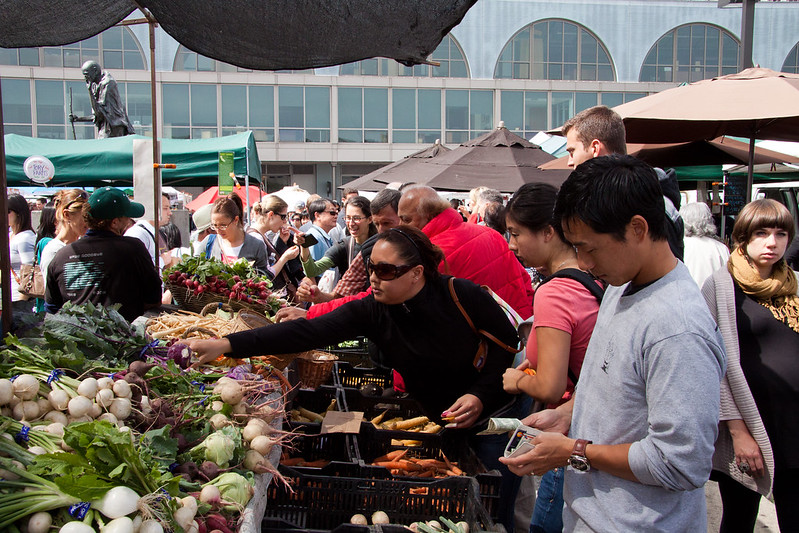
Take a walk through the entire market before you buy anything.
Before you even think about buying anything, take a walk through the market and see what’s available. You’ll want to start with the produce stands and then move on to the meat and fish vendors, stopping at any food trucks or carts in between.
While walking around, ask questions if you have them: “What is this vegetable?” “Where are these eggs from?” “Is this chicken organic?” The vendors will usually be happy to answer your questions and may even give you tips on how best to prepare their products. If they don’t know how to answer your question honestly (or if they don’t want to), then move on down the line!
The other thing I recommend doing once you’ve had a chance to look around is going up each aisle or row at least twice before deciding which items are worth buying for yourself or someone else (or both!). This way when it comes time for checkout there won’t be any surprises!
If a vendor has a lot of one thing but little of another, that’s what they need to sell.
This is a great way to learn about the growing season, and it also allows you to find what you’re looking for. If there’s a vendor who has a lot of tomatoes but few cucumbers, they’ll be happy to sell their tomatoes at a lower price since they need space on their table for more cucumbers. You can also ask if they have more tomatoes in the back if you’re interested in buying them at a cheaper price than offered upfront.
Consider when you’ll be using the products you buy
You’re at the market, you see some beautiful strawberries and you want to buy all of them. But before you do, consider when you’ll be using the products you buy. If it has a long shelf life and you don’t need to use it right away, freeze some of it so that when summer comes around again, your frozen fruit will be ready for baking or smoothies. If on the other hand, your bunch of bananas are going bad fast because nobody in your house can keep track of what day it is (or what month), then maybe purchasing less would be better for everyone involved.
Get to know the vendors and their growing practices, if possible.
The best way to learn about a product is by talking to the person who grew it. Find out where they are from, how long they have been in business, what their favorite products are and how you should cook them. If possible, also ask about their growing practices and background — for example, if you have allergies or dietary restrictions you can let them know before purchasing something that might not work for your needs.
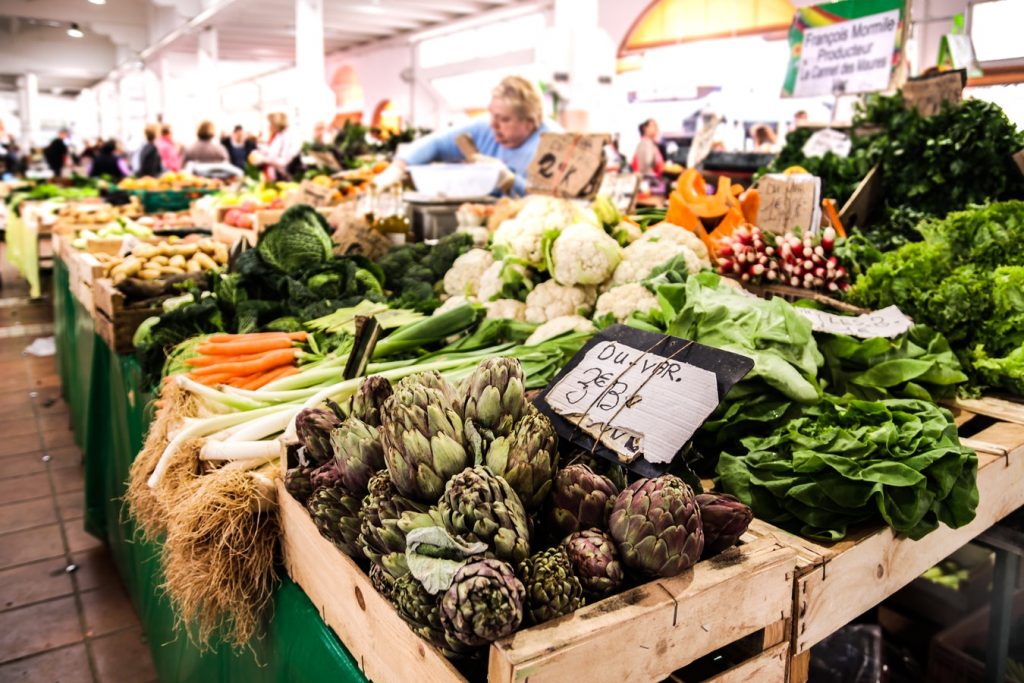
“Yard eggs” are not regulated in most states, so use caution when buying them.
One of the things you should be aware of when purchasing eggs at a farmers market is that they may not be regulated by the FDA. This means that there are no standards set for egg processing, which means any number of things, including:
- The eggs may not be safe for consumption and could contain salmonella.
- They may have been washed in unsanitary conditions or handled by people who do not have the proper training to handle food safely.
Most farmers’ markets don’t accept EBT and SNAP benefits.
Some do, though, so this is a good question to ask upon arrival at the market. If you’re lucky enough to find one that does accept EBT and SNAP benefits, it’s worth asking if certain vendors accept them as well. Some farmers markets only accept EBT and SNAP benefits on certain days of the week or during specific hours (maybe when they’re less busy).
Connect with Farmers at the Market
Farmers markets can be a great way to connect with local producers, but it’s important to go in knowing how they work. The following are questions you should ask before heading out:
- How do I know what’s in season?
- What does “local” mean?
- How can I be sure the food is fresh?
Conclusion
When you go to a farmers market, be prepared for some sticker shock. This is not the time or place to shop on a budget. You’re supporting local producers, and you should pay what they’re asking for their goods. Be sure to bring cash or your own reusable bags so that you don’t end up with extra plastic when all is said and done. If you want something specific from a certain vendor, then ask before buying anything else – they probably have it on hand already! We hope these tips will help your next visit be as enjoyable as possible!




